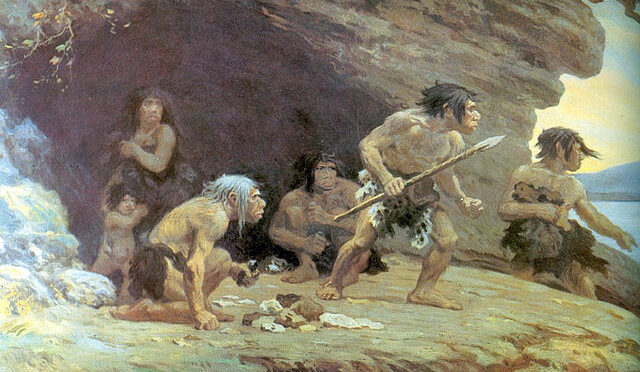Views: 1153
The first drawn depictions of Neanderthals portrayed them more like gorillas than humans. For decades, this close relative, with whom our species coexisted for thousands of years, was considered to be a primitive being, lacking intelligence and skill.
However, we now know that this human species, which inhabited Europe for hundreds of thousands of years and was discovered by science in the mid-19th century in the Neander Valley, formed communities with advanced cultures. In fact, they were so closely related to our lineage that interbreeding frequently occurred, and the majority of Europeans carry traces of their genetic heritage.
Although Neanderthals are considered to have gone extinct around 40,000 years ago, we can say that they have continued to evolve in our minds, transforming from little more than bipedal animals into fully respectable humans.
Scientific advancements have played a role in this shift in perception, but only prejudices or biased perspectives can explain why those initial impressions were so impoverished.
Perhaps it was partly due to the fact that in the mid-19th century, Europe was deep in the colonial era, with half the world under its control. In those times, ships laden with slaves were still sailing, generating great fortunes for influential people who shaped societal messages. If not all people were considered equal within humanity itself at that time, how could one expect an extinct ancestor to be seen as equal?
There may also have been a sense of guilt at play. Homo sapiens has caused the extinction of many species on this planet. Who knows what our interactions were like with a slightly different relative who disappeared entirely after coexisting with us?
It’s interesting to observe how our social concepts evolve. Not long ago, speaking out about the problems caused by an excessive reliance on tourism was condemned by some as an unacceptable form of “tourism phobia.”
But the analysis of data and evidence now allows us to talk about the unacceptable saturation of certain places, the transformation and loss of identity in some areas, the displacement of residents due to rising housing costs, the depletion of water resources, and the lack of career prospects for young people in Menorca.
Neanderthals were discovered almost simultaneously with Darwin’s formulation of the Theory of Evolution, which brought about a complete shift in the paradigm of creation, though not without accusations of sacrilege.
The debate about tourism arises at a time when scientific consensus on human-caused climate change, alarming biodiversity loss, and the urgent need to reorganize how we manage (and abandon the idea of exploiting) the planet is growing.
Today, accusations of heresy come from certain economic sectors and political positions that resist any challenge to the mental framework upon which their privileges are built.
Neanderthals likely suffered from a combination of the Ice Age, population isolation, and coexistence with modern humans. Now, it’s up to us, Homo sapiens, to demonstrate that our cognitive abilities can open new paradigms that prevent us from self-extinction.
(This text is an adaptation of the original article published by Miquel Camps, as coordinator of territorial policy for the GOB, in the Menorca newspaper on 02/09/2024).

